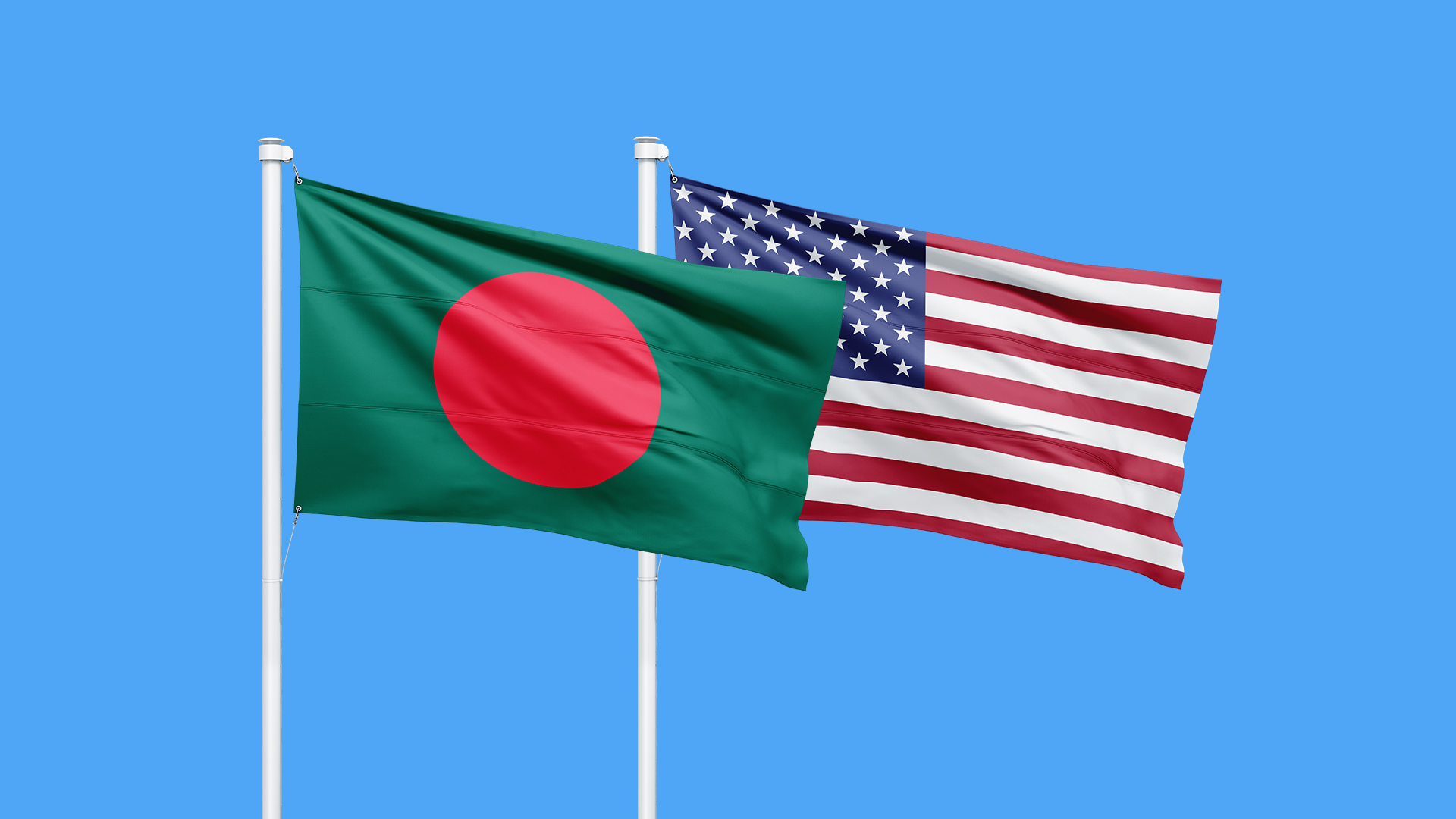30 Bangladeshis sent back from US in cuffs and shackles

Thirty undocumented Bangladeshis were deported from the United States with their hands cuffed and feet shackled. A special chartered flight carrying them landed at Hazrat Shahjalal International Airport in Dhaka late Thursday night.
Flight Lieutenant Masud, spokesperson for the airport, told The Daily Star that the plane touched down around 11:30pm. Among the deportees was one woman.
Airport officials said the aircraft remained on the runway for nearly three hours after landing, during which the deportees' restraints were gradually removed.
Witnesses reported that they were escorted off the plane still in chains and only unshackled before reaching the arrival lounge. No one was allowed to approach them during this time.
Around 2:00am, under tight security, the group was moved inside the airport. A special team from the Ministry of Home Affairs, several intelligence agencies, and US embassy officials were present.
Journalists attempting to take photographs were stopped.
According to sources, BRAC provided financial support for the deportees to return to their homes. Witnesses said the group appeared physically and mentally exhausted after the long journey.
Abdullah, a 22-year-old deportee from Noakhali, told The Daily Star, "We were chained like criminals throughout this long journey. It felt as if we were treated like terrorists while returning to Bangladesh. I hope no one else has to face such a situation."
The US has intensified deportations of undocumented immigrants during Donald Trump's second presidential term. At least 180 Bangladeshis have been sent back in recent months as part of multiple phases of the crackdown.
Under US law, immigrants without valid documents may be deported by court order or administrative directive. If asylum claims fail, Immigration and Customs Enforcement (ICE) arranges their removal. The process has recently accelerated, with increased reliance on chartered and military flights.
Most Bangladeshis attempt to enter the US through Mexico or Latin America, often paying between Tk 30 lakh and Tk 75 lakh to traffickers.
Several deportees said they had been held hostage by Mexican mafias linked to trafficking syndicates. At least six reported being tortured until their families paid Tk 40–50 lakh for their release. Others said traffickers extorted up to Tk 75 lakh, forcing them to sell all their assets.
"There are countless Bangladeshis trapped by such national and international trafficking networks," said Tanzil Hasan of Munshiganj, who added that many deportees intend to pursue legal action against the traffickers in Bangladesh.
This is not the first time such treatment has sparked outrage. In 2016, 27 Bangladeshis were also deported from the US in handcuffs. That episode triggered public outcry and raised questions about human rights and dignity, prompting discussions between the Bangladeshi government and US authorities.
Migration experts argue that deportees should not be restrained unless they pose a security risk. Handcuffing and shackling ordinary migrants, they say, violates international human rights standards.
Shariful Hasan, associate director of BRAC's Migration and Youth Platform, said, "People migrate seeking better lives but often fall prey to trafficking rackets charging Tk 30–75 lakh. While destination countries have the right to deport, chaining people for hours is extremely unfortunate and leaves them traumatised. We hope future repatriations are carried out more humanely."



 For all latest news, follow The Daily Star's Google News channel.
For all latest news, follow The Daily Star's Google News channel. 
Comments